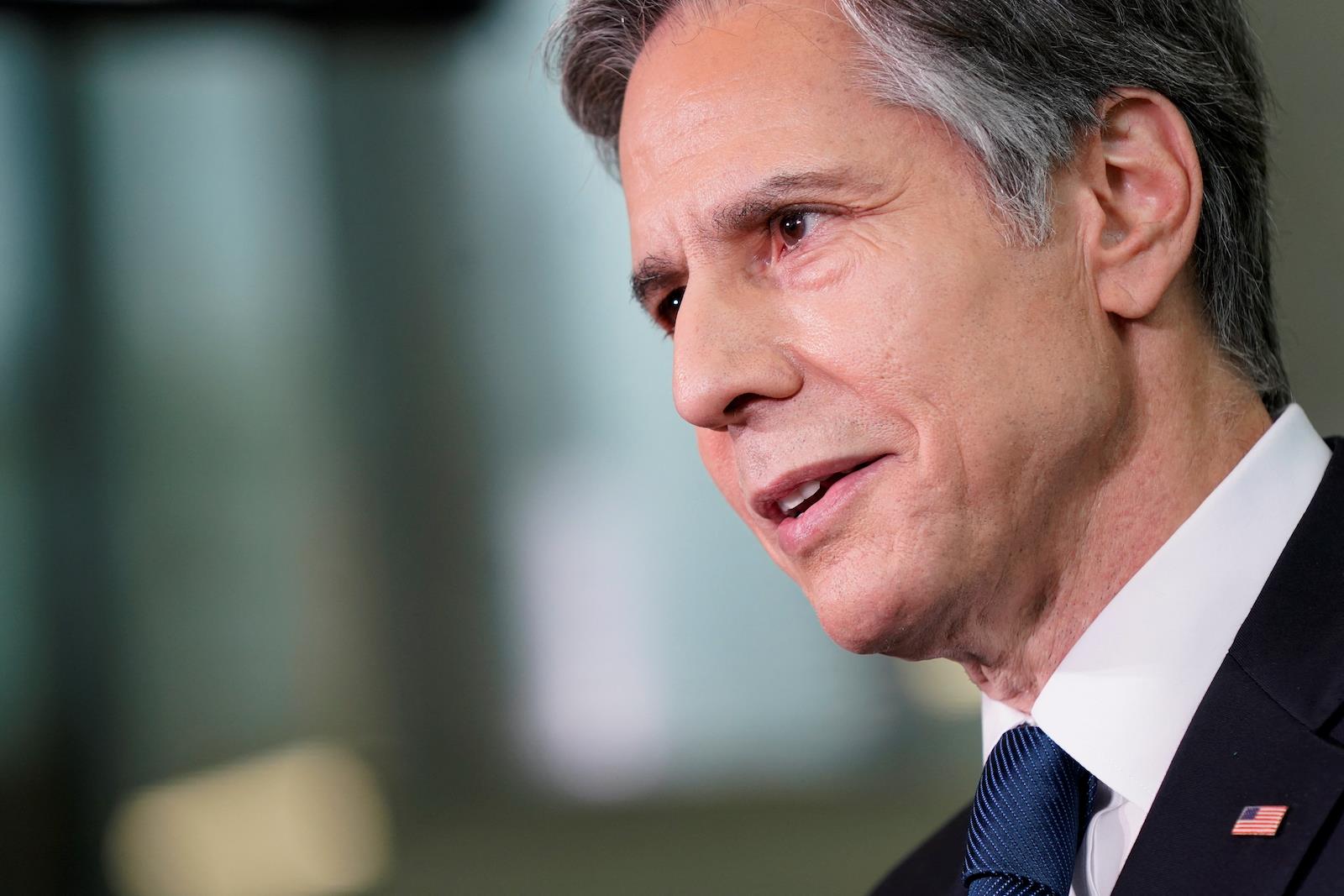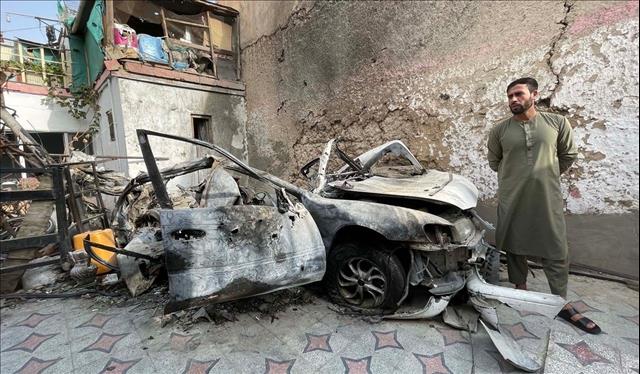
India must not let US strike Taliban from its soil
(MENAFN- Asia Times) The old town and city park planners in England wouldn't finalize footpath routes until they could observe for a while the tracks of walkers, then deciding where to lay the pathways for optimal utility.
The US and Indian governments apparently think they don't have that luxury when it comes to Afghanistan. That is the troubling signal that came out of the congressional hearing on Monday in Washington with US Secretary of State Antony Blinken.
But for a start, Blinken was rather muted in his reaction to Pakistan's perceived duplicity in taking advantage of the US. Certainly, he would know three things.
First, such discord in the US-Pakistan relationship is nothing new. Second, while the present is full of hiccups in the relationship over the Taliban's seizure of power in Afghanistan, the future beckons the imperative for Pakistan's cooperation.
Third, Blinken is well aware that his statement cannot be the last word on the topic. In fact, on Tuesday, Lieutenant-General Scott Berrier, who leads the Defense Intelligence Agency, said at the Intelligence and National Security Summit in Maryland that al-Qaeda may be only 12 to 24 months from reconstituting itself in Afghanistan to pose a significant threat to the United States.
How far such a prognosis is warranted remains a matter of conjecture. To my mind, an al-Qaeda reboot in Afghanistan is highly improbable.
But US intelligence and the Pentagon would sense the urgency to consult Pakistan. William Burns, the director of the Central Intelligence Agency, met with Pakistan's Chief of Army Staff, General Qamar Javed Bajwa, twice recently.
This is where Blinken's remarks on India assume great importance. He was frontally asked by a powerful Republican congressman, Mark Green, whether the US has sought to explore the possibility of over-the-horizon capabilities in northwest India for counterterrorism capabilities in Afghanistan:
Republican congressman Scott Perry also chipped in:“I would say that we should no longer pay Pakistan and we should pay India.”

Taliban fighters stand on an armored vehicle before parading to celebrate their takeover of the country. Photo: AFP / Javed Tanveer
But Blinken reacted evasively:“Generally, congressman, we're deeply engaged with India across the board. With regard, though, to any specifics about … the rise in capabilities and the plans that we put in place and will continue to put in place, I'd rather take that up in a different setting.”
Put differently, Blinken hinted that the subject is far too sensitive to be discussed publicly, and he'd rather have an in camera hearing. Notably, Blinken did not reject the congressmen's suggestion but prefers a closed-door discussion. Which is a tacit acknowledgment that it is an open file.
Playing Pakistan against India comes out of the US toolbox. At any rate, don't be surprised. I had predicted this to happen as early as late April, in anticipation of the inevitability of a Taliban takeover in Afghanistan.
In historical terms, the wheel has come full circle. We are circa 2003 when the George W Bush administration discreetly broached the topic of participation by an Indian Army contingent in the US invasion of Iraq. The liberal internationalist lobby in New Delhi felt enthralled at the prospect of an Indian expeditionary mission to Iraq assisting the only superpower on the planet.
Thank God, the prime minister at the time, Atal Bihari Vajpayee, put his foot down with a firm“nyet” that saved India's reputation.
Curiously, the US lawmakers broached this sensitive topic as a visit by the current PM, Narendra Modi, to the White House was due in less than two weeks' time. Ask the Russians: They'll tell you from Cold War experience how such exchanges on the Hill are almost always carefully choreographed.
This is a highly disturbing scenario. New Delhi's strategic silence is not helping matters.
Meanwhile, External Affairs Minister Subrahmanyam Jaishankar's speech at the UN conference on September 13 regarding aid to Afghanistan faithfully toed the American line – that the Afghan government should be bypassed in the dispatch and distribution of international humanitarian aid.

US Secretary of State Antony Blinken says using India as a staging area for the over-the-horizon forces is too sensitive a subject to discuss publicly. Photo: AFP / Patrick Semansky
Jaishankar has prescribed what the US has been doing to Syria with a view to somehow undermining the legitimacy of President Bashar al-Assad's government.
Afghanistan's sovereignty and territorial integrity are in meltdown, and it will be extremely damaging for India's long-term interests if the Afghan state collapses. This is just not the time for Jaishankar to play zero-sum games vis-à-vis Pakistan or China – or both.
The Taliban are on record categorically that they will oppose“over-the-horizon” military interventions in Afghanistan. They insist that such military operations on Afghan soil will be their sovereign prerogative. Rightly so.
In strictly legalistic terms, the Logistics Exchange Memorandum of Agreement of August 2016 between India and the US may provide for the two militaries to work closely and use each other's bases in the given situation where the US is planning operations in Afghanistan.
But no matter the Indian security establishment's past antipathy toward the Taliban, Afghanistan remains a friendly country, and wanton Pentagon air/missile strikes have a history of killing civilians. We just saw how seven children were killed in a drone strike in Kabul on August 28, with the Pentagon lying about it.
Most important, by facilitating the Pentagon's military operations from Indian soil, New Delhi will be undercutting its own case that the Taliban should not allow Afghan soil to be used against India.
Ironically, the Taliban's foreign minister Amir Khan Muttaqi just stated in Kabul,“We will not allow anyone or any groups to use our soil against any other countries.” This is the first confirmation from the interim government of the new cabinet's intention to honor a deal the Taliban reached with the US last year in Doha.
Above all, what is the guarantee that in a volte-face, the US doesn't kiss and make up with the Taliban? Such policy somersaults are endemic to US regional strategy. India lives in its region and must not antagonize the Taliban for America's sake.
The late Atal Bihari Vajpayee set a great tradition to sense the opinion of the Indian Parliament on such issues of great consequence.
This article was produced in partnership by Indian Punchline and Globetrotter , which provided it to Asia Times.
M K Bhadrakumar is a former Indian diplomat.

Legal Disclaimer:
MENAFN provides the
information “as is” without warranty of any kind. We do not accept
any responsibility or liability for the accuracy, content, images,
videos, licenses, completeness, legality, or reliability of the information
contained in this article. If you have any complaints or copyright
issues related to this article, kindly contact the provider above.


















Comments
No comment